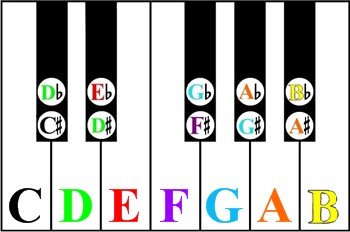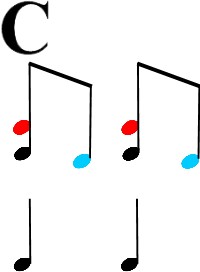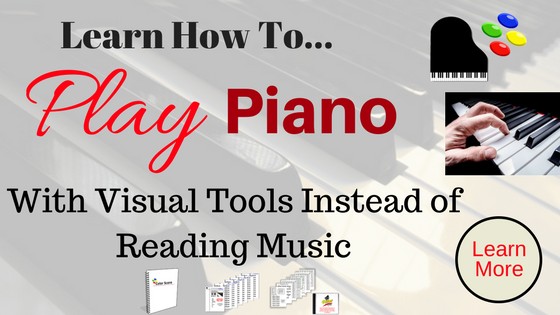A musician that is engaged in the activity of composing, discerning, or performing music is utilizing some aspect of music theory to do so. They can knowingly or unknowingly be aware of the music theory concepts they are using.
You can learn to play piano without knowing music theory. However, it will prove to be difficult, frustrating and very limiting without the willingness to understand basic music theory concepts. Music theory is perceived to be difficult to learn but can be a rewarding experience if approached in the right way.
What exactly is music theory?

Music theory is a process that musicians employ to comprehend and express the language of music. It is the study of music’s fundamentals. It also includes a system for interpreting musical works.
It’s a study of the patterns in music and defines what they are and how they work.
The primary utilization of music theory is to compose, interpret and perform music. Without it, these musical processes would be riddled with trial and error.
Why music theory seems complicated
Music theory has an abstract quality to it in part because it uses words to describe the sounds we hear in music. For beginning musicians, it can be confusing to make the connection. Beyond a simple melody, there is a lot going on in a piece of music.

From a basic viewpoint, you have the melody, harmony and rhythm. These elements are constantly changing in music. And essentially every musical concept can be defined on some level.
When you look at music theory as an all encompassing study, it contains a lot of elements that can be overwhelming to grasp.
Another aspect of music theory is that the resources used to explain it have mostly been oriented towards classical music. This ignores other styles of music such as the popular song form.
The basics of music theory
Notes
Notes are the most fundamental place to start in music theory. They’re the basis of any song. There are 12 different notes in music.

Intervals
Intervals are simply the distances between notes. For every two notes you have, there is an interval between them. Knowing and understanding intervals helps to define melodies, chords, progressions and other elements of music.

Keys of Music
A key of music is a pattern of 7 different notes. They are a group of musical pitches that form a scale. A scale is unique in the sense that it features a tonic note (first note in the key) and has a unique relationship to the other notes in the key. All notes in the key want to resolve to the tonic which gives a satisfying feeling of resolution.

Chords
Chords are constructed upon notes that reside in the key of music that they’re played in. The most basic chords are triads and come in different structures that cause them to sound different. Chords can go beyond simple triads to create complex sounds.

Note: If you want to know how chords move in a key of music, here is an article about a tool referred to as the “Chord Ladder”. It’s essentially a tool that shows the harmonic gravity of chords. Check it out!
Rhythm
Rhythm is basically the arrangement of notes which causes them to be played in either a lively or unlively fashion that creates a feeling of emotion. They must be arranged in a way that allows them to be played within the boundaries of the measures that they’re contained in.

Chord theory
As I mentioned earlier, music theory education has always been oriented towards classical music. This in no way infers that it is only useful for classical repertoire. But the nature of learning music concepts that are not exemplified in other music styles will leave those students bewildered.
It’s also responsible for causing non-classical musicians to shy away from learning music theory. They proceed at playing and making music without even trying to understand how this puzzle is put together.
Even though there are many avenues of music theory to explore, you don’t have to reach advanced levels of music theory to play your favorite music.
One very useful way for the aspiring piano player to start sounding good at the piano is to embrace Chord Theory.
Beyond the basics that I just mentioned, Chord Theory is the art and science of playing and arranging chords to make songs satisfying to play and listen to.
Basic Triads
The most basic chords consist of three notes and are called triads. Even though they’re simple, don’t underestimate them. Triads are the workhorses of harmony. In fact, there are four groups of triads. There are Major, minor, diminished and augmented triads.
Major
A Major triad is constructed off of the first, third and fifth tones of a Major scale. The Major triad has a happy sound and is the predominant chord for songs that are in a Major key.

Minor
A minor triad is constructed of the first, third and fifth tones of a minor scale. The minor triad has a sad sound and is the predominant chord for songs that are in a minor key.

Diminished
A diminished triad is constructed of the first, minor third and diminished fifth tones. The diminished triad has a spooky sound. It’s often used as a transitory chord to another chord.

Augmented
An augmented chord is constructed off of the first, third and augmented fifth tones. The augmented triad has a feeling of tension and is often used as a chromatic passing chord.

Beyond basic triads are chords that have extended tones. These tones give chords a greater depth of harmony and give infinite possibilities to music. By understanding chord theory, you’ll increase your depth of knowledge and skill that goes beyond just basic notes.

The advantage of understanding concepts

The resistance for any musician to learn music theory is understandable. It’s always been approached as an academic study without demonstrating its practical value. But to benefit from learning even the most rudimentary music theory, a change in the way you view music theory is necessary.
Music theory is essentially understanding musical concepts and how to apply them in different musical contexts. By understanding concepts, it opens up the door to not only play your favorite music, but to understand what is happening in the music that can take you further into creating your own music.
The 7 Essential Music Theory Concepts You Should Know
Melody
The melody of a song is most often the identifying characteristic of it. Understand that melodies come from scales (aka keys of music). Learn to read melodies from lead sheets at the very least so you play songs from lead sheets and fake books. Also, study melodies by ear. This way, you can learn to play songs instinctively without being tied to written music.
Rhythm
Any succession of notes have rhythm. Every melody has a rhythm and so does the harmony. Learn basic rhythm and note values. This goes a very long way in learning songs and composing your own music.
Keys of Music
Songs are composed in keys of music. This understanding takes you away from the concept of random notes. This gives function to all of the notes that are in a song.
Chords
Many musicians feel that chords provide the richest musical experience. This is especially true for piano players because we have so many harmonic possibilities on our instrument. Studying triads (which we discussed earlier) and going beyond them can open up an exciting world of harmony.
The Number System
Knowing the number system is of incredible value for any musician. It’s a structural way to understand keys of music, chords and progressions. It will make it faster and easier to learn songs and communicate with other musicians.
Progressions
Since chords are transitory, they progress from one to another. There are thousands of songs that share the same chord progressions. It’s very beneficial to understand the different types of chord progressions and how they relate to different songs.
The Popular Song Form
Unlike classical music, popular music has a particular song structure that sets it apart. This is essentially the arrangement of the song. You can have the introduction, verse, pre-chorus, chorus, bridge, etc. Studying this framework helps you to learn popular and traditional songs.
| Element | Function | Benefit |
|---|---|---|
| Intervals | Distance between notes | Build chords & melodies |
| Chords | Harmonies | Harmonize songs |
| Rhythms | Patternistic pulse | Play with strong movement |
| Progressions | Framework of songs | Use structure to play songs |
My Final Thoughts
By questioning whether you can learn to play piano without knowing music theory indicates a concern of whether or not it may be worth taking the time and effort to learn it. We don’t want to waste our time on endeavors that aren’t going to produce a return on our efforts.
But you should understand that music theory isn’t difficult. This is especially true as it relates to practical music skills for playing popular music.
Start out learning music theory by developing an understanding of the music concept you’re learning before moving on to the next one. You will find that taking the time to learn music theory will reward you by making it easier to play and compose music as you move forward.
Greg Lee
Latest posts by Greg Lee (see all)
- What is a minor/Major 7 Chord? - October 26, 2023
- 7 Chord Substitutions that Professionals Use - October 19, 2023
- 5 Simple Chord Tricks to Sound Amazing - October 5, 2023



